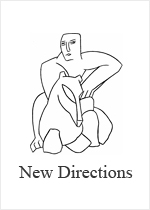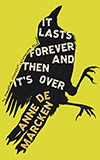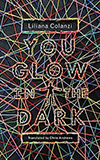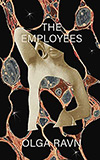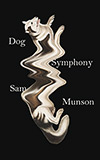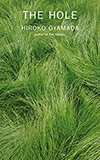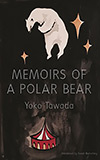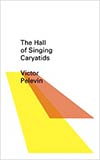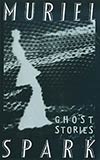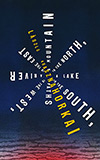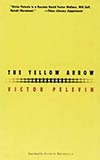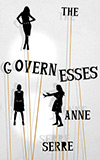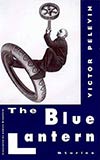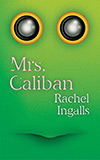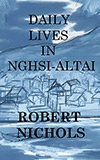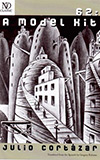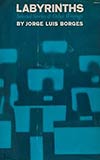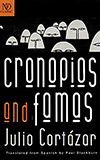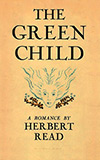New Directions
| Founded: |
1936 |
| Founded by: |
James Laughlin |
| Location: |
80 Eighth Ave.
New York, New York 10011
USA |
| Titles/Circulation: |
0 |
| Links: |
|
History
New Directions was founded in 1936, when James Laughlin (1914 - 1997), then a twenty-two-year-old Harvard sophomore, issued the first of the New Directions anthologies. "I asked Ezra Pound for 'career advice,'" James Laughlin recalled. "He had been seeing my poems for months and had ruled them hopeless. He urged me to finish Harvard and then do 'something' useful." Intended "as a place where experimentalists could test their inventions by publication," the ND anthologies first introduced readers to the early work of such writers as William Saroyan, Louis Zukofsky, Marianne Moore, Wallace Stevens, Kay Boyle, Delmore Schwartz, Dylan Thomas, Thomas Merton, John Hawkes, Denise Levertov, James Agee, and Lawrence Ferlinghetti. Soon after issuing the first of the anthologies, New Directions began publishing novels, plays, and collections of poems. Ezra Pound and William Carlos Williams, who once had difficulty finding publishers, were early New Directions authors and have remained at the core of ND's backlist of modernist writers. And Tennessee Williams first appeared as a poet in the early Five Young American Poets.
Although New Directions started in the service of verbal revolution, it also reprinted Henry James, E.M. Forster, Ronald Firbank and Evelyn Waugh when other publishers would not; when no one would print F. Scott Fitzgerald's The Crack Up, ND did; when The Great Gatsby was out of print, New Directions brought it back. New Directions has published nearly 20 of Henry Miller's unorthodox essays and travel books and first printed James Joyce's Stephen Hero, Herman Hesse's Siddhartha, and brought back into print books of such importance as Gary's Promise at Dawn, Henry Green's Back, Joyce Cary's Second Trilogy, and Nathaniel West's Miss Lonelyhearts. This tradition is carried on today in our series of New Directions Classics. Begun in 1981, this series has brought back works by Sherwood Anderson, Kay Boyle and H.E. Bates, among many others, and introduced works by little-known European masters such as Eça de Queirós, Krleza, and Kosztolányi.
In the spring of 1993 ND introduced the Bibelot series of short, self-contained "gems" from the backlist such as Henry Miller's A Devil in Paradise, poems by Pound and W.C. Williams, together with reissues of short modern classics such as Muriel Spark's The Abbess of Crewe. These inexpensive, pocket-sized volumes serve as introduction to the great modernist authors of the twentieth century.
In addition, ND has relaunched many classics recently with introductions by contemporary authors: these include Tennessee Williams' A Streetcar Named Desire (Introduction by Arthur Miller) and Cat on a Hot Tin Roof (Introduction by Edward Albee), John Hawkes' Second Skin (Introduction by Jeffrey Eugenides), and John Gardner's October Light (Introduction by Tom Bissell).
Interested in issuing influential foreign writers in translation, (often in bilingual editions), New Directions has been largely responsible for America's interest in Céline, André Gide, Apollinaire, Yukio Mishima, Italo Svevo, Tommaso Landolfi, Rainer Maria Rilke, Kafka, Octavio Paz, Eugenio Montale, Lorca, Nabokov, and most recently W.G. Sebald, Javier Marías, Roberto Bolaño, Inger Christensen, Uwe Timm, Yoko Tawada, Antonio Tabucchi, Bei Dao, and Victor Pelevin. And from Britain -- E.M. Forster, B. S. Johnson, and H. E. Bates.
The handsome color jackets featuring abstract designs for which New Directions was known in the 1950s were the work of designer Alvin Lustig. In order to give ND books a distinctive look in the early days of the paperback, Lustig suggested switching to black-and-white covers exclusively, which for many years was a house trademark. The colophon of the centaur was designed from a statue by Heinz Henghes sculpted in the 1930s.
New Directions was honored in 1977 with a Carey Thomas Award special citation for distinguished publishing in poetry and experimental prose. Its authors have won the Nobel Prize (Frédéric Mistral, Eugenio Montale, Pablo Neruda, Saint-John Perse, Octavio Paz, José Camilo Cela), Pulitzer Prize (Richard Eberhart, Selected Poems 1930-1965; George Oppen, Of Being Numerous; Gary Snyder, Turtle Island; Tennessee Williams, A Streetcar Named Desire; William Carlos Williams, Pictures from Brueghel), MacArthur Foundation Fellowship (Walter Abish, Allen Grossman, and Ralph Manheim, translator), PEN/Faulkner Award (Walter Abish, How German Is it?; Toby Olson, Seaview), Neustadt International Prize for Literature (Octavio Paz, Kamau Brathwaite), American Translators Association Prize for German Literary Translations (Breon Mitchell, translator of Martin Grzimek, Heartstop), Lenore Marshall Poetry Prize (Denise Levertov), and The Present Tense/Joel H. Cavior Literary Award (William Herrick, That's Life), among others. New Directions authors inducted into the American Academy and Institute of Arts and Letters include Robert Creeley, James Laughlin and Gary Snyder. James Laughlin was the recipient of the American Academy and Institute Award for Distinguished Service to the Arts, the Annual P.E.N. Publisher Citation, and the National Arts Club Medal of Honor for Literature. In 1980, he was the first winner of the New York State Arts Council James Laughlin Award for distinguished achievement in independent publishing. Laughlin passed away in 1997.
New Directions now publishes about 30 books annually in hardcover and paperback.
Works in the WWEnd Database
| 2024 |
 |
|
|
|
| 2024 |
 |
|
|
|
| 2022 |
 |
|
|
|
| 2018 |
 |
|
|
|
| 2018 |
 |
|
|
|
| 2020 |
 |
|
|
|
| 2016 |
 |
|
|
|
| 2011 |
 |
|
|
|
| 2003 |
 |
|
|
|
| 2022 |
 |
|
|
|
| 2015 |
 |
|
|
|
| 2005 |
 |
|
|
|
| 2018 |
 |
|
|
|
| 2000 |
 |
|
|
|
| 2017 |
 |
|
|
|
| 1977 |
 |
|
|
|
| 2000 |
 |
|
|
|
| 1962 |
 |
|
|
|
| 1999 |
 |
|
|
|
| 1948 |
 |
|
|
|
|
|
|
|
Authors Published
• Victor Pelevin
• Julio Cortázar
• Yoko Tawada
• Sam Munson
• Anne Serre
• Robert Nichols
• Rachel Ingalls
• Hiroko Oyamada
• Olga Ravn
• László Krasznahorkai
• Herbert Read
• Liliana Colanzi Serrate
• Eka Kurniawan
• Anne de Marcken
• Jorge Borges Acevedo
• Muriel Spark



















 Full Details
Full Details

